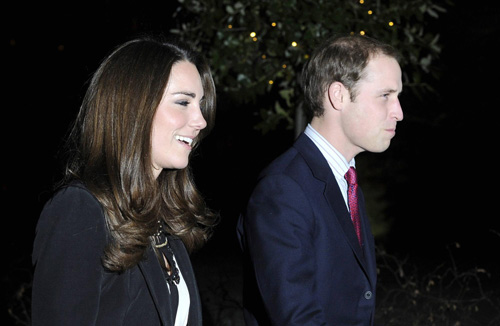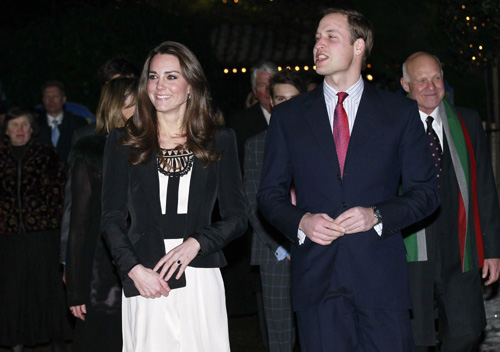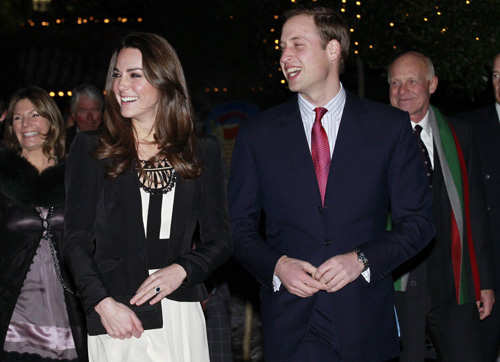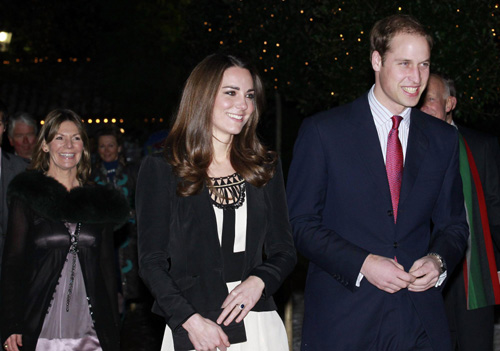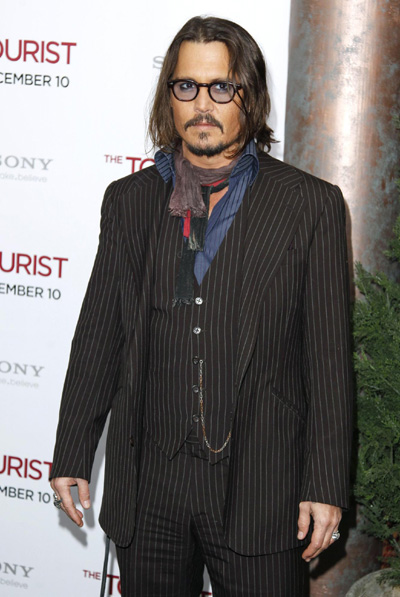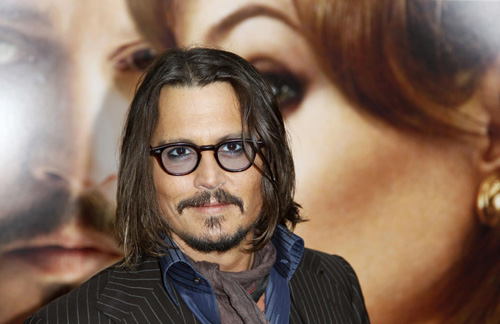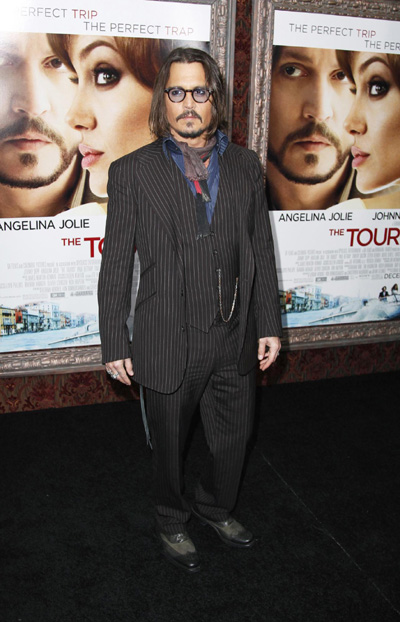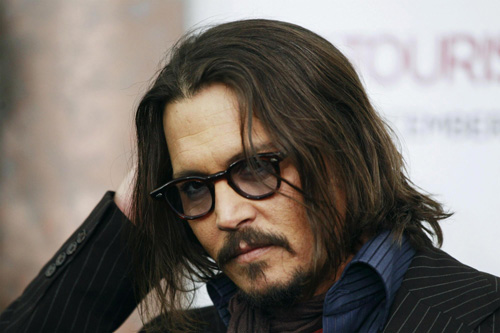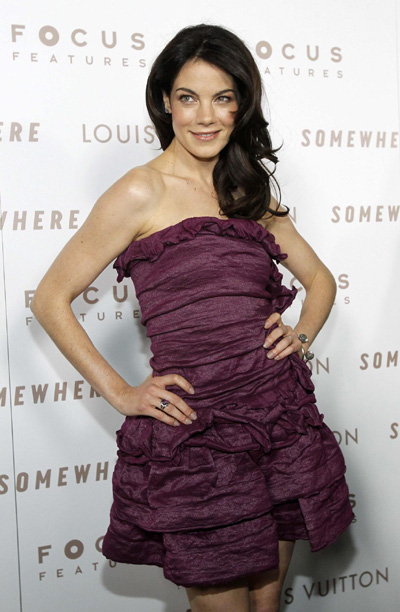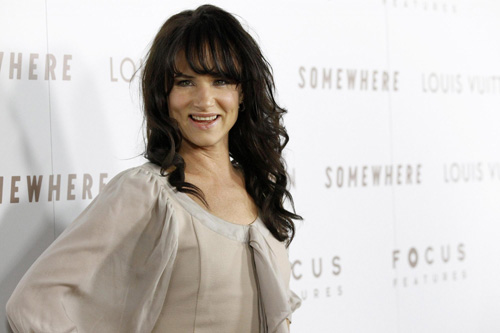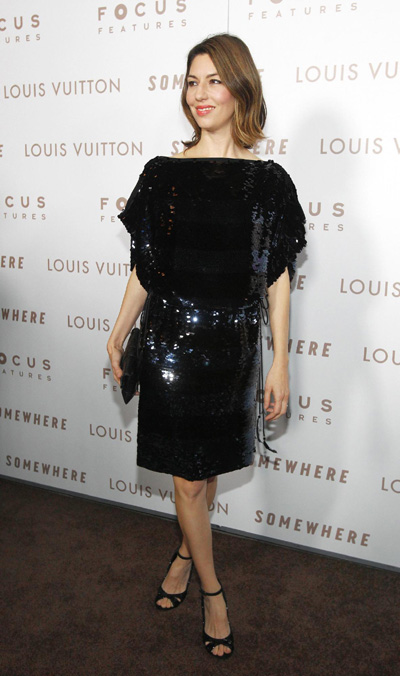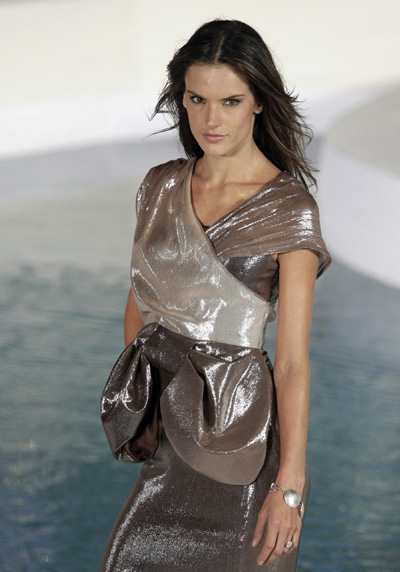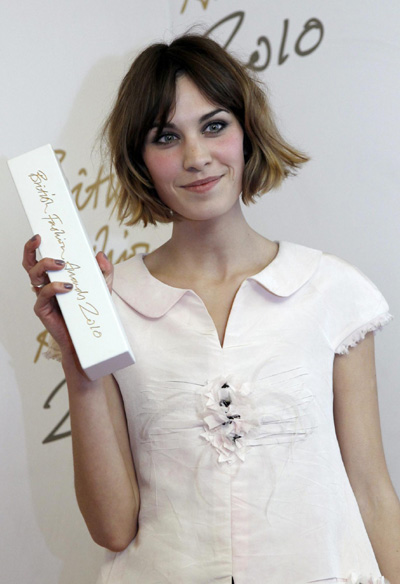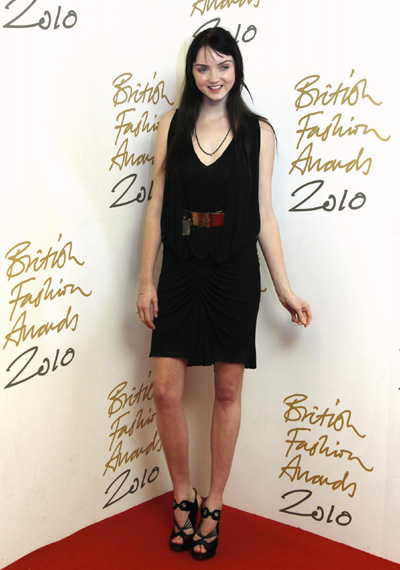The tragic death of celebrity Wang Bei has made people aware of the risks of cosmetic surgery, which is becoming increasingly popular. Tiffany Tan and Mei Jia report
For years Wang Ziwen contemplated having plastic surgery to make her jaw line fashionably narrow and her face smaller. The Beijinger finally decided against it a few days ago after hearing of the death of former Super Girl contestant Wang Bei during "facial bone-grinding surgery" in mid-November. Wang Bei, 24, is said to have gone under the knife in Wuhan, Hubei province, to jump-start her faltering showbiz career. "Wang Bei's death rang the warning bell for me," Wang Ziwen said in a tweet on her Sina Weibo micro blog. "It was frightening and I gave up the plan."
Denny Chen, a 27-year-old Beijing hairdresser, also dropped his plans for vision-correcting laser surgery because of the news.
"I'm afraid the same thing might happen to me, so I've decided to forget the surgery," he says.
It seems the aspiring singer Wang Bei has finally achieved the fame and influence that eluded her during her lifetime.
A survey on the reaction to Wang's death, conducted by Tencent, which runs China's most popular instant-messaging service, received more than 600,000 responses, as of press time Monday.
Forty-one percent of respondents expressed sorrow over her death, saying, "It's a pity she died at such a young age." Some 31 percent said she should have been more cautious and less vain, while 10 percent were enraged at the hospital that conducted the surgery. The remaining 18 percent were indifferent.
A common thread of online discussion is why someone considered beautiful was so dissatisfied with her looks. Some netizens said Wang was a victim of society's unrealistic ideal of beauty: double eyelids, an aquiline nose and the pointed chin typical of Western celebrities. Others said her death underscores the limits to which people will go to achieve fame and fortune.
The Ministry of Health (MOH) stepped in on Nov 27, calling on health authorities nationwide to step up supervision of the country's medical cosmetology industry. It also instructed the Hubei health department to investigate Wang's death and "to make the results of the investigation public as soon as possible".
Wang's death highlights the fact that cosmetic surgery has become one of China's biggest beauty secrets. Last year an estimated 15 billion yuan ($2.2 billion) was spent on cosmetic surgery and the figure is expected to rise 20 percent annually, a China Central Television report concluded.
Some 3 million surgical and non-surgical cosmetic procedures are done in the country annually, according to partial data from the Chinese Association of Plastics and Aesthetics, under the MOH.
The US-based International Society of Aesthetic Plastic Surgery ranks China first in Asia in terms of the number of procedures performed in 2009. Worldwide, China is third, after Brazil, while the United States is first.
As the wealthy and middle-class segments of the Chinese population expand - and as celebrity culture takes an even firmer hold - people are becoming more conscious of their looks and are willing to go to great lengths to enhance them.
The example of senior citizens is illustrative.
"Nowadays, people are living longer and better. But the effects of aging on their appearance affects their mood and confidence," says Ye Xinhai, a doctor with the plastic surgery department of Shanghai No 10 People's Hospital, which reported a 20 percent increase in older patients in the past two years.
"Many older women want to look as young and beautiful as those high-profile older actresses in TV dramas or South Korean soaps operas and are happy to spend money on their appearance."
Young people, on the other hand, see cosmetic surgery as the key to wealth and love.
"They want to improve their appearance to find better opportunities at work and in marriage," says Ding Xiaobang, a plastic surgeon with the Peking Union Medical College Hospital.
"We're living in a highly competitive society. People regard appearance as a weapon and a means of empowerment ... Most of them tell me, 'I don't care how much I spend, just make me look beautiful'."
In the past decade, Ding says he has seen a growing number of patients, like Wang Bei, who are young and naturally good-looking. The surgeon attributes this trend to people becoming richer, the standards of beauty changing, competition and frustration.
"Some are frustrated with life and use surgery as a way to try and recover," he says.
According to the International Society of Aesthetic Plastic Surgery, the top five surgical procedures performed in China in 2009 were breast augmentation, liposuction, upper or lower eyelid lift, nose reshaping and "tummy tuck".
The surge in demand for plastic surgery has resulted in a rise in the number of unauthorized business establishments and surgeons conducting such procedures.
Meanwhile, experts say, young and beautiful people who still seek plastic surgery need to address their self-awareness issues and be more accepting.
"They've built their identity around the admiration of others and fail to establish a system to assess themselves," says Zhu Wenbo, a psychologist with Blue Bay Psychological Consulting Center in Chengdu. "People's opinions always change, so this is not a reliable way to evaluate oneself."
Part of the blame for the plastic surgery craze Zhu pins on false advertising, which "exaggerates the benefits and overlooks or doesn't acknowledge the risks".
In 12 years as a therapist, Zhu has become familiar with the consequences of those risks. "I've met several people whose faces were ruined by plastic surgery, and helping them recover is difficult."
Besides, he says, there is still no research that solidly equates plastic surgery with an increase in self-confidence.
"The standard for judging oneself should be competence and ability," Zhu says.
Facts
 |
| Former Super Girl contestant Wang Bei, who lost her life to botched "facial bone-grinding surgery" in mid-November at a Wuhan clinic. Provided to China Daily |
In 2009, China's plastic surgery industry earned 15 billion yuan ($2.2 billion). The figure is expected to rise 20 percent annually (China Central Television). In 2009, more than 200,000 people were engaged in the plastic surgery industry, working for some 50,000 hospitals, clinics and beauty salons (Ministry of Health).
Some 3 million surgical and non-surgical cosmetic procedures are performed in China each year (Chinese Association of Plastics and Aesthetics).
China has the world's second largest number of plastic surgeons: 4,250 or 13.8 percent of the world total. The United States ranks first with 5,700 or 18.5 percent. (International Society of Aesthetic Plastic Surgery).
The five most popular surgical and non-surgical cosmetic procedures in China: Botox or Dysport injectables, breast augmentation, liposuction, laser hair removal and hyaluronic acid injectables, which are also used to reduce wrinkles (International Society of Aesthetic Plastic Surgery).
The summer school break is a popular season for students to get plastic surgery. Up to 80 percent of cosmetic surgery patients in Beijing in the summer of 2010 were senior high school and college students, with the rate expected to rise to 90 percent in the coming years (China Medical Treatment Orthopedics and Beauty Association).
From 2006 to 2009, approximately 1,000 Chinese people traveled to South Korea each year to undergo cosmetic surgery (Korea Tourism Organization).
Advice
Tips from a surgeon and psychologist if you're considering cosmetic surgery:
1. Choose regular, qualified hospitals, especially those with a good reputation for these procedures. Avoid beauty salons.
2. Try to find an expert surgeon who agrees with your views on beauty and will not suggest several operations over time.
3. Do not expect too much from changing your appearance. There are limitations and safety should be the priority.
4. Have a realistic understanding of the risks of the surgery (death, injury, failure), and think about what the results will be in the immediate and long term, as the operation may be irreversible. Make a balanced decision and do not rush into surgery.
